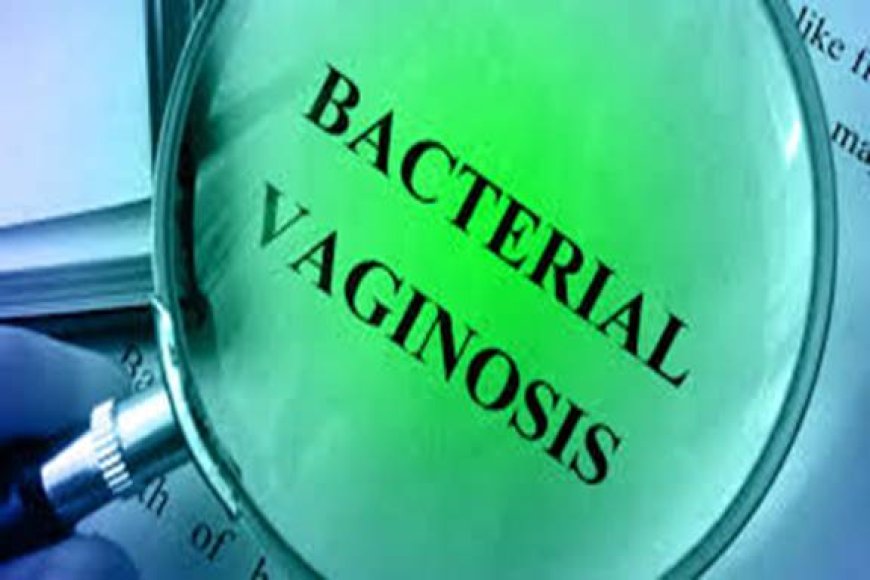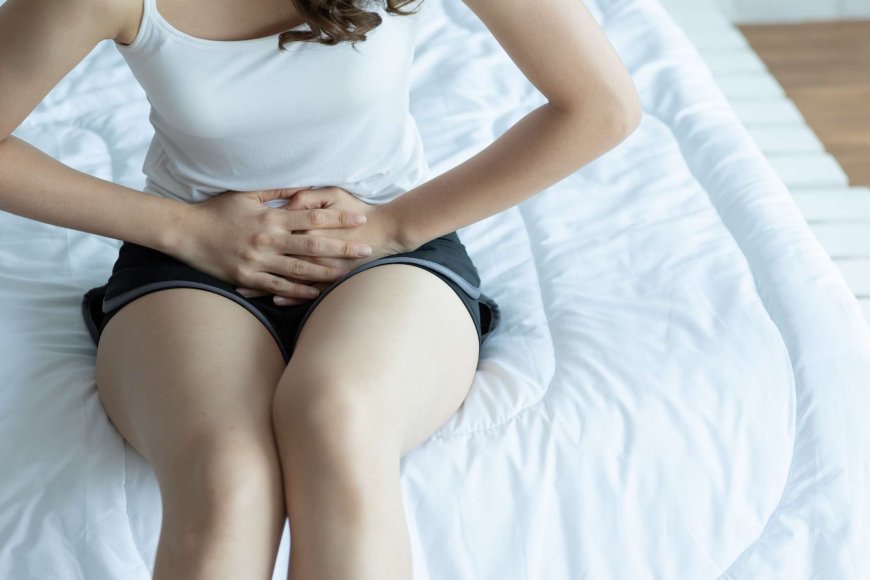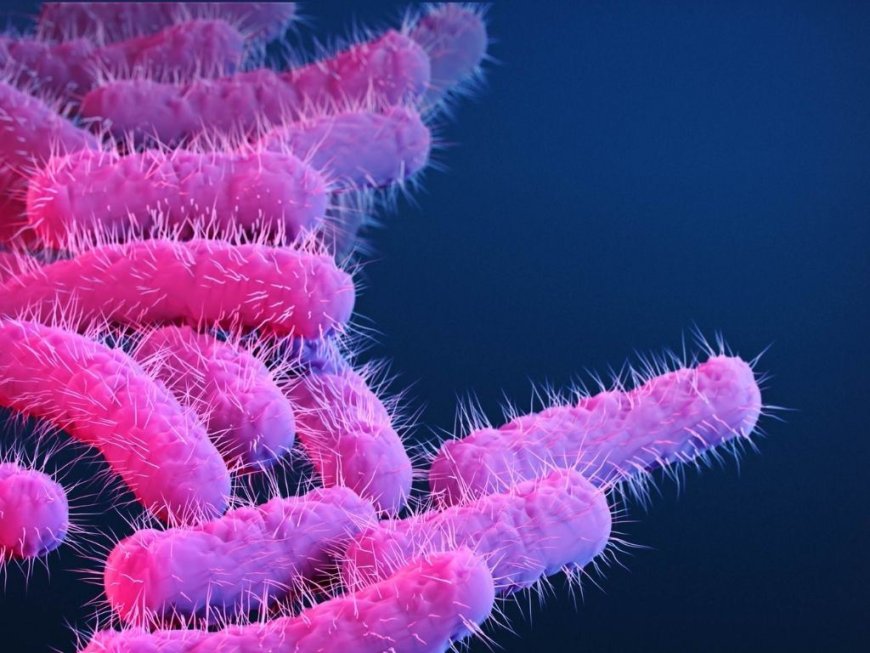What is bacterial vaginosis?
Bacterial vaginosis is a common type of vaginal infection characterized by an overgrowth of bacteria in the vagina. This imbalance of vaginal flora can lead to unpleasant symptoms, including a grayish white, thin vaginal discharge and a strong, fish-like odor.

What is bacterial vaginosis?
Bacterial vaginosis is a common type of vaginal infection characterized by an overgrowth of bacteria in the vagina. This imbalance of vaginal flora can lead to unpleasant symptoms, including a grayish white, thin vaginal discharge and a strong, fish-like odor. The exact cause of bacterial vaginosis is unclear, but it has been linked to various factors such as douching, use of antibiotics, and multiple sex partners.
Some of the common symptoms of bacterial vaginosis include:
-
A thin, grayish white vaginal discharge that may have a foul odor.
-
Burning sensations during urination
-
Intense itching in or around the vagina
-
Mild to moderate pain during sexual intercourse

Bacterial vaginosis can usually be treated with antibiotics prescribed by a doctor, such as metronidazole or clindamycin. It's recommended that you should avoid sex during treatment period and to continue taking antibiotics until the course is completed as prescribed. Additionally, women can help prevent bacterial vaginosis by avoiding douching and taking steps to maintain a healthy vaginal environment. Wearing cotton underwear and avoiding strong fragrances, bubble baths or harsh soaps for the vulva can help maintain the vaginal pH balance and prevent the growth of harmful bacteria.

Learn from the video also bacterial vaginosis
Decoding Vaginal Discharge: BV vs. Yeast Infection
Understanding Bacterial Vaginosis
Doctor explains HOW TO TREAT AND PREVENT BACTERIAL VAGINOSIS (BV)
Bacterial vaginosis, Causes, Signs and Symptoms, DIagnosis and Treatment.

Frequently Asked Questions
What causes bacterial vaginosis?
Bacterial vaginosis (BV) is caused by an overgrowth of certain types of bacteria in the vagina. The exact cause is not fully understood, but it is believed that an imbalance in the natural bacteria present in the vagina may play a role. This imbalance may be triggered by several factors such as :
-
Douching
-
Using certain types of soaps or perfumes
-
A new sexual partner or multiple sex partners
-
Antibiotic use
-
Hormonal changes
-
Uncontrolled diabetes
-
Smoking
-
Use of an intrauterine device (IUD)
-
Poor hygiene
-
Stress.
However, in many cases, the exact cause of BV is unknown.
How is BV usually treated?
Bacterial vaginosis (BV) can be treated with antibiotics. The most commonly prescribed antibiotics for BV are metronidazole and clindamycin, which can be taken orally or applied as a vaginal cream or gel. These medications work by killing the bacteria causing the infection and restoring the natural balance of bacteria in the vagina. It's important to finish the full course of antibiotics as prescribed by the healthcare professional to prevent recurrence.
BV can also be treated with natural remedies, such as probiotics, tea tree oil, and boric acid, but their effectiveness and safety are not always supported by scientific evidence and should be used with caution.
It's recommended to avoid sexual contact or use barrier methods such as condoms during treatment to prevent reinfection or spread of the infection.

Can bacterial vaginosis be cured?
Yes, bacterial vaginosis (BV) can be cured with proper treatment. Antibiotics are often prescribed to kill the bacteria causing the infection and restore the normal balance of bacteria in the vagina. However, there is a chance of recurrence of BV even after successful treatment, especially if the underlying cause, such as douching or using irritating products, is not addressed. In some cases, additional treatments may be needed to completely eliminate the infection. It's important to consult a healthcare professional if BV symptoms persist or recur even after treatment.
How can I test for BV at home?
Although are some home testing kits for bacterial vaginosis (BV), it's best to consult a healthcare professional for proper diagnosis. At home tests may not always be accurate or reliable, and misdiagnosis or improper treatment can lead to complications. A healthcare professional can examine the vaginal area and take a swab sample to determine the presence of abnormal bacteria. They can also perform other tests, such as pH monitoring or a microscope examination, to differentiate BV from other vaginal infections. A healthcare professional can recommend the appropriate treatment based on the test results and other factors such as medical history, age, and pregnancy status.
How long does bacterial vaginosis last?
The duration of bacterial vaginosis (BV) can vary from person to person and depends on factors such as the severity of the infection and how quickly it is treated. If left untreated, BV can last for several weeks or months and may cause discomfort or pain in the genital area, abnormal vaginal discharge, and an unpleasant odor.
However, with proper treatment, such as antibiotics or other recommended treatments, most people can see improvement of BV symptoms within a few days. It's important to finish the full course of treatment, even if the symptoms improve to prevent recurrence or other complications. After treatment, it's also important to take steps to prevent BV from recurring, such as good hygiene practices, avoiding irritating products, and using protection during sexual activity.
What color is BV discharge?
Bacterial vaginosis (BV) may cause a thin, white or gray discharge that can have a strong, fishy odor. The discharge is typically watery or liquid, and there may be more of it than usual. BV discharge may also be accompanied by itching in the vaginal area and discomfort or pain during sex. It's important to consult a healthcare professional if you are experiencing any changes in vaginal discharge or symptoms, as BV can be easily treated with proper diagnosis and treatment.

How do you treat a female private part infection?
The treatment for a female genital infection depends on the type of infection. It's best to consult a healthcare professional for proper diagnosis and treatment. Here are some general guidelines :
1. Bacterial vaginosis (BV) : BV can be treated with antibiotics, such as metronidazole or clindamycin, which your healthcare professional can prescribe.
2. Yeast infection : Yeast infections are usually treated with antifungal medication, which can be purchased over the-counter or prescribed by a healthcare professional.
3. Sexually transmitted infections (STIs): Depending on the type of STI, appropriate treatment may include antibiotics or antiviral medication.
4. Urinary tract infections (UTIs) : UTIs are usually treated with antibiotics. Your healthcare professional can prescribe the appropriate medication.
5. Genital herpes : Genital herpes is treated with antiviral medications, which can help manage symptoms and reduce the risk of transmission.
It's important to avoid sexual activity or use protection during sex until the infection has been treated and resolved. It's also important to practice good hygiene habits, such as keeping the genital area clean and dry, wearing clean and breathable clothing, and avoiding products that may irritate the genital area.
What are the symptoms of BV in females?
The most common symptoms of bacterial vaginosis (BV) in females include :
-
Thin, white or gray vaginal discharge
-
Strong, fishy odor from the discharge (particularly after sex)
-
Vaginal itching or irritation
-
Burning sensation during urination
-
Pain during intercourse
-
Mild discomfort or pain around the vaginal area
It's possible to have BV without experiencing any noticeable symptoms. It's important to remember that some of these symptoms are also similar to other vaginal infections, so it's best to consult a healthcare professional for proper diagnosis and treatment. If you are experiencing any unusual symptoms or discomfort, it's recommended to consult a healthcare professional as soon as possible.
How do you stop BV from coming back?
To reduce the risk of bacterial vaginosis (BV) recurrence, you can take the following steps:
1. Practice safe sex : Using a condom during sex can help reduce the risk of getting another infection.
2. Limit douching : Douching disrupts the natural pH balance of the vagina and can lead to the overgrowth of harmful bacteria. Therefore, it's better to avoid douching altogether.
3. Avoid irritants: Products such as scented soaps, bubble baths, and perfumed sprays can irritate the vagina and increase the risk of infection. It's best to avoid using such products.
4. Wear breathable clothing : Cotton or other breathable materials underwear help prevent excessive moisture around the genital area which can lead to BV.
5. Eat a balanced diet : Include fiber-rich foods like fruits and vegetables in your diet to reduce inflammation and improve gut health.
6. Probiotics : Eating foods or taking supplements that contain probiotics may help in reestablishing the natural balance of healthy bacteria in the vagina and reduce the risk of BV.
It is also important to attend all appointments with the healthcare professional, take antibiotics as prescribed, and finish the full course of medication to prevent reinfection.
How can I prevent BV with diet?
While diet alone won't necessarily prevent bacterial vaginosis (BV), it can help maintain a healthy immune system, keep inflammation in check, and keep the vaginal area healthy. Here are some dietary changes you can make to support vaginal health:
1. Probiotics : Probiotic-rich foods can help support the production of healthy bacteria. Fermented foods like yogurt and kefir are good sources.
2. Anti-inflammatory foods : A diet rich in anti-inflammatory foods like fruits and vegetables can help reduce inflammation that can contribute to the development of infections.
3. Fiber : Eating a high-fiber diet can help maintain healthy digestive functions, which can prevent constipation or discomfort around the vaginal area.
4. Hydration : Drinking plenty of water can help flush out toxins from your system, and also keep vaginal fluids flowing.
5. Vitamin C : Vitamin C is essential for collagen production and maintaining a healthy immune system. Citrus fruits and other fruits and vegetables high in vitamin C can be added in your diet.
While diet is important, it's also crucial to take other preventative measures, such as hygiene practices and safe sexual habits, to reduce the risk of BV.
Can bacterial vaginosis spread?
Bacterial vaginosis (BV) is not considered a sexually transmitted infection (STI) but it is an imbalance of the normal bacteria in the vagina, that means it can't be spread through sexual intercourse. However, it is common to see BV in partners who have frequent unprotected vaginal intercourse.
While BV can't be spread through casual contact like touching or kissing, it is possible for the overgrowth of bacteria in the vagina to spread to other parts of the reproductive system, such as the uterus or fallopian tubes, which can result in more serious infections. It's best to seek proper diagnosis and treatment if you think you may have BV to prevent any negative consequences for your reproductive health.
Can periods cause BV?
Periods can contribute to the development of bacterial vaginosis (BV) due to changes in vaginal pH, but BV is not caused exclusively by periods or menstruation. Other factors such as hygiene practices, use of certain products, and sexual activity can increase the risk of developing BV.
Does bacterial vaginosis cause pain?
Bacterial vaginosis (BV) can cause some discomfort and pain, but it is typically mild. Common symptoms of BV include:
-
Thin, white or gray vaginal discharge
-
Strong, fishy odor from the discharge (particularly after sex)
-
Vaginal itching or irritation
-
Burning sensation during urination
-
Pain during intercourse
-
Mild discomfort or pain around the vaginal area
Pain associated with BV, such as pain during intercourse or urination, is usually mild to moderate. BV is not typically associated with severe or persistent pain. However, if you have a persistent or severe pain in your vaginal region, it's important to see a healthcare professional to determine the underlying cause and receive appropriate treatment.
What are signs of Viginal infections?
The signs and symptoms of vaginal infections can vary depending on the type of infection. Some of the most common signs and symptoms of vaginal infections include:
1. Abnormal vaginal discharge : Changes in the color, consistency, or smell of vaginal discharge may indicate a vaginal infection. For example, a thick, white, cheesy discharge is often associated with a yeast infection, while a gray, white, or yellowish discharge with a strong fishy odor is often associated with bacterial vaginosis.
2. Itching or irritation : Itching, burning, or irritation in and around the vaginal area may indicate a vaginal infection.
3. Pain or discomfort during sex : Pain or discomfort during intercourse can be a sign of vaginal infection.
4. Pain or discomfort during urination : Pain or discomfort when urinating can indicate a urinary tract infection (UTI) or a vaginal infection.
5. Vaginal bleeding : Spotting or bleeding between periods or after sex can be a sign of an infection or other underlying condition.
6. Swelling: Swelling, redness, or tenderness in and around the vaginal area can signify an infection.
It's important to note that some vaginal infections may not cause any noticeable symptoms, or symptoms may be mild and easily overlooked. If you are experiencing any unusual symptoms or discomfort, it's recommended to consult a healthcare professional as soon as possible.
How can I get rid of BV permanently at home?
There is no guaranteed way to get rid of bacterial vaginosis (BV) permanently but several methods can help reduce the frequency of recurrence of BV Here are some steps you can take at home to help manage BV :
1. Practice good hygiene : Clean your genitals regularly, but avoid using soaps or perfumed products as they can upset the natural pH balance of the vagina.
2. Avoid douching : Douching can disrupt the natural balance of bacterial flora in the vagina, which can lead to an overgrowth of harmful bacteria and increase BV risk.
3. Probiotics : Eating foods or taking supplements that contain probiotics may help maintain a healthy balance of vaginal bacteria.
4. Avoid irritants : Avoid using irritants such as scented panty liners, bubble baths, and perfumed sprays.
5. Practice safe sex : Use a condom during sexual activity to reduce the risk of reinfection.
6. Wear breathable clothing : Wear underwear that is made of natural, breathable materials such as cotton or bamboo. Try to avoid tight-fitting clothing.
7. Garlic: Garlic has antimicrobial properties that can fight the bacteria that cause BV. You can eat raw garlic or use garlic supplements.
It's important to understand that while these methods help to reduce BV recurrence, they may not eliminate the possibility of reinfection entirely. It is always recommended to consult a healthcare professional to get a proper diagnosis and treatment plan tailored to your individual needs.
Does stress cause BV?
There is limited research on the direct link between stress and bacterial vaginosis (BV), but stress can weaken the immune system, making it difficult for the body to combat infections. Other factors such as lifestyle, diet, and stress levels can also impact the natural balance of bacteria in the vagina, making it easier for BV to develop.

We provide you with authentic, trustworthy and revelant information

Have issue with the content?

Disclaimer
The information given on our website www.uterusq.com is being posted only for the purpose of knowledge and information, before using them, choose them completely and check the correctness with your subject matter expert. We (www.uterusq.com) have no responsibility for any kind of loss.







